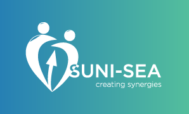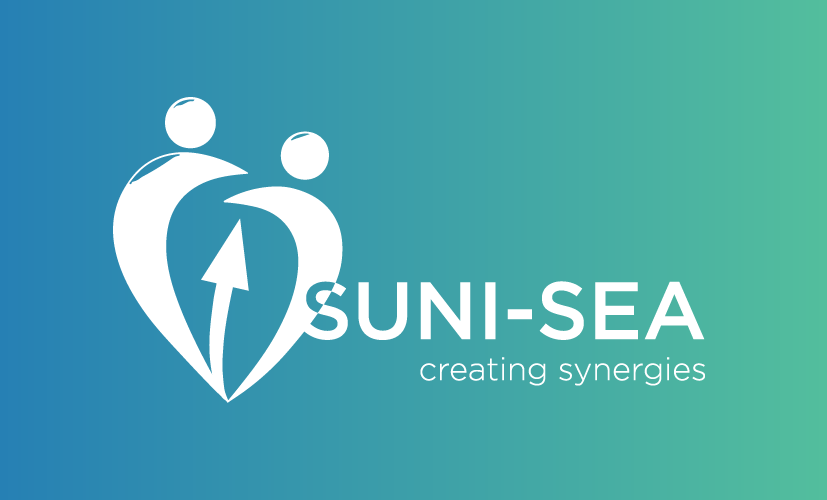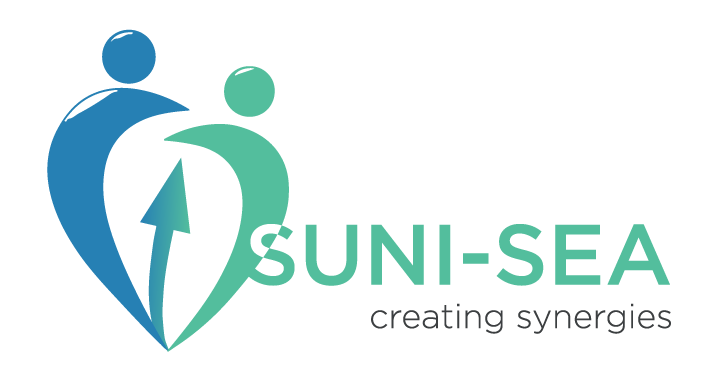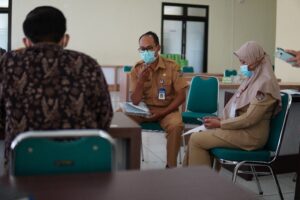During the first quarter of this year, despite the challenges of the COVID-19 pandemic, we managed to achieve a few important SUNI-SEA project activities, which took place in Karanganyar Regency, Central Java, Indonesia.
In January, a three-day pilot training was conducted for health workers and Posbindu cadres on using algorithms for early detection of non-communicable diseases (NCDs). The 15 participants were enthusiastic health team members from Karanganyar District Health Office, coordinators of NCDs programmes and Posbindu cadres from four health centres.¹ The training was facilitated by the SUNI-SEA project research team, from Universitas Sebelas Maret.
The training event was packed with interesting topics such as: overviews of hypertension and diabetes mellitus, physical examination, anthropometry, non-fasting blood sugar and the introduction of the Posbindu algorithm application, for early detection of NCDs. The cadres and health workers also had an opportunity for hand-on practice for using the algorithm application.
One of the key topics that was discussed during the training, were the challenges participants were facing during the COVID-19. The group members shared their experiences about adapting to the ‘new normal’ ways of working, including the referral system for NCDs cases and programme implementation during the pandemic.
This training equipped the participants with knowledge and skills to deliver an effective NCDs intervention, such as the ability to use the NCDs algorithm, and identify or detect risk factors for NCDs; based on the results of interviews related to patient’s baseline data and medical history.
 Later in March, the research team spent five days conducting NCDs cost survey data collection, at the public health centres in the same part of the country, Karanganyar Recency. Prior to the on-site visit, the team coordinated with stakeholders including the health office and the administration section of each public health centres to obtain budget records, related to NCDs activities. During the data collection process, the researchers crosschecked all the data that they had received, and reconfirmed the numbers with staff, and the Head of Administration at each public health centre.
Later in March, the research team spent five days conducting NCDs cost survey data collection, at the public health centres in the same part of the country, Karanganyar Recency. Prior to the on-site visit, the team coordinated with stakeholders including the health office and the administration section of each public health centres to obtain budget records, related to NCDs activities. During the data collection process, the researchers crosschecked all the data that they had received, and reconfirmed the numbers with staff, and the Head of Administration at each public health centre.
The data collected during March 2021, became the pilot public health centre NCDs cost survey for the SUNI-SEA project.
Even though all of the settings were called ‘public health centres’, we found that the ways they managed, operated, obtained funding, and engaged with communities were different from one health centre to another. The extensive learning from this process was documented and will be used as part of the learning.
When the data is analysed, the researchers will be able to assess the cost-effectiveness of NCDs intervention in health care centres; this is one of the most important research elements of the SUNI-SEA project.
1. Colomadu I public health centre, Jatiyoso public health centre, Tawangmangu public health centre, Kerjo public health centre.






